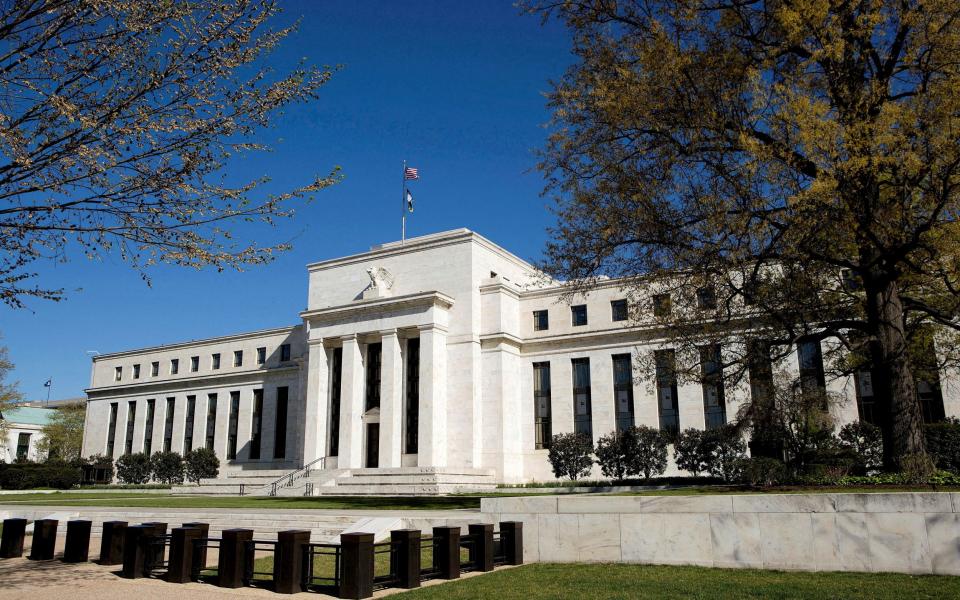Slowing US growth sparks stagflation fears in blow for Biden

A shock slowdown in the US economy and stubborn inflation has raised the prospect of stagflation gripping America in a blow for President Joe Biden as he fights for re-election.
Stock markets in the US and Europe tumbled on Thursday after new figures showed US growth slowed to 1.6 pc in the first quarter of the year.
That was well below forecasts of 2.5pc and far below the 3.4pc economic expansion recorded in the final quarter of 2023. Worryingly, core inflation also accelerated to 3.7pc in the first quarter, up from 2pc previously and above the 3.4pc economists had anticipated.
Traders are now betting that the Federal Reserve will only be able to cut interest rates from December, as officials led by Jerome Powell are forced to hold borrowing costs at 5.5pc for longer in an effort to crush inflation.
Ryan Sweet at Oxford Economics said: “The recent firmness in inflation will keep interest high for longer.”
It leaves Mr Biden facing the prospect of heading into November’s election with no help from lower borrowing costs. The typical 30-year mortgage in the US now comes with an interest rate of more than 7.2pc.
The toxic combination of slowing growth and still high inflation means “stagflation chatter will surely pick up,” warned Ian Lyngen at BMO.
The S&P 500, Dow Jones and Nasdaq indexes all fell more than 1pc on Wall Street. The Euro Stoxx 50 closed down 0.99pc, amid fears that persistent inflation will prove to be a global problem and not just confined to the US.
It came as the World Bank chief economist Indermit Gill warned that global inflation was “undefeated” and risked keeping borrowing costs higher for longer.
High commodity prices mean there is a considerable risk that price rises could flare up again, he said.
Mr Gill said: “A key force for disinflation, falling commodity prices, has essentially hit a wall.
“That means interest rates could remain higher than currently expected this year and next. The world is at a vulnerable moment: a major energy shock could undermine much of the progress in reducing inflation over the past two years.”
Oil prices have risen by a fifth since December and markets remain on edge after missile strikes between Iran and Israel raised concerns about an escalating conflict across the Middle East.
Ayhan Kose, the World Bank’s deputy chief economist, warned that geopolitical instability was “keeping upward pressure on prices of major commodities and stoking risks of sharp price movements.”
Mr Kose said: “Central banks must remain alert about the inflationary implications of commodity-price spikes amid elevated geopolitical tensions.”
Oil, copper and gold prices are all much higher than in the pre-pandemic years, the World Bank pointed out.
Crude oil will average $84 a barrel in 2024, the institution predicted, which is more than double the pre-Covid average of $34.
The World Bank warned that an escalation of conflict in the Middle East could push up the prices of natural gas, fertilisers and food.
Meanwhile, the net-zero transition is boosting prices of metals that are critical to rolling out green technologies.

 Yahoo Finance
Yahoo Finance 